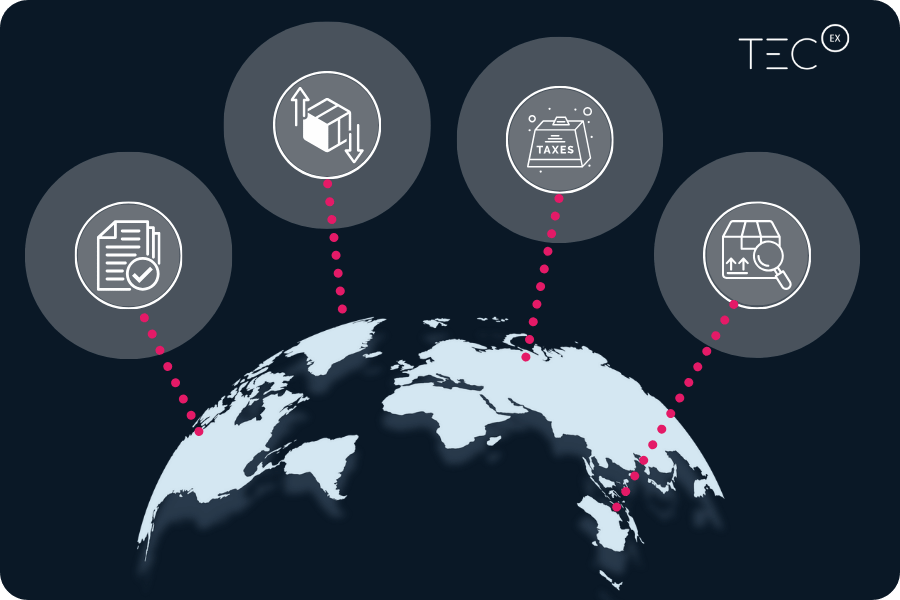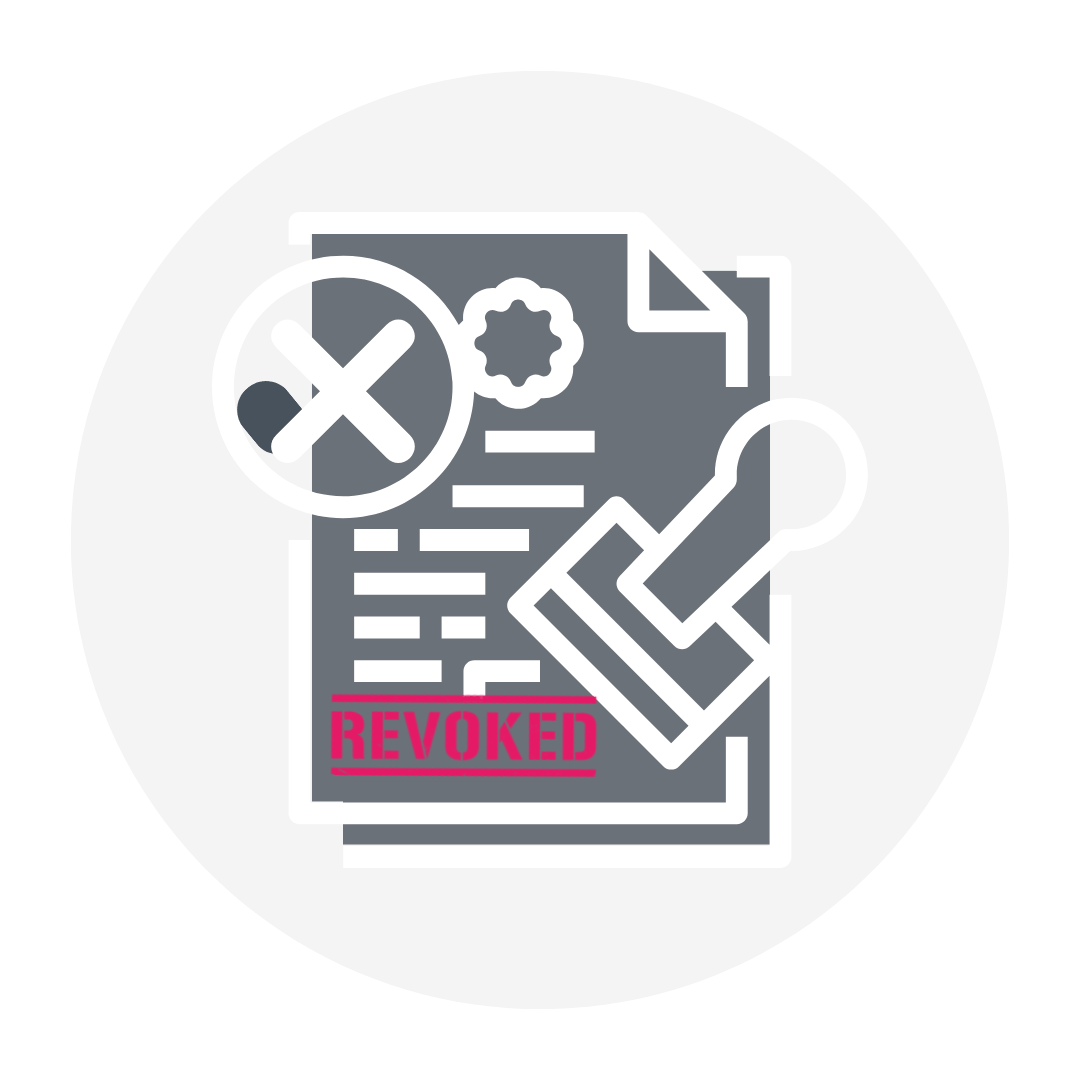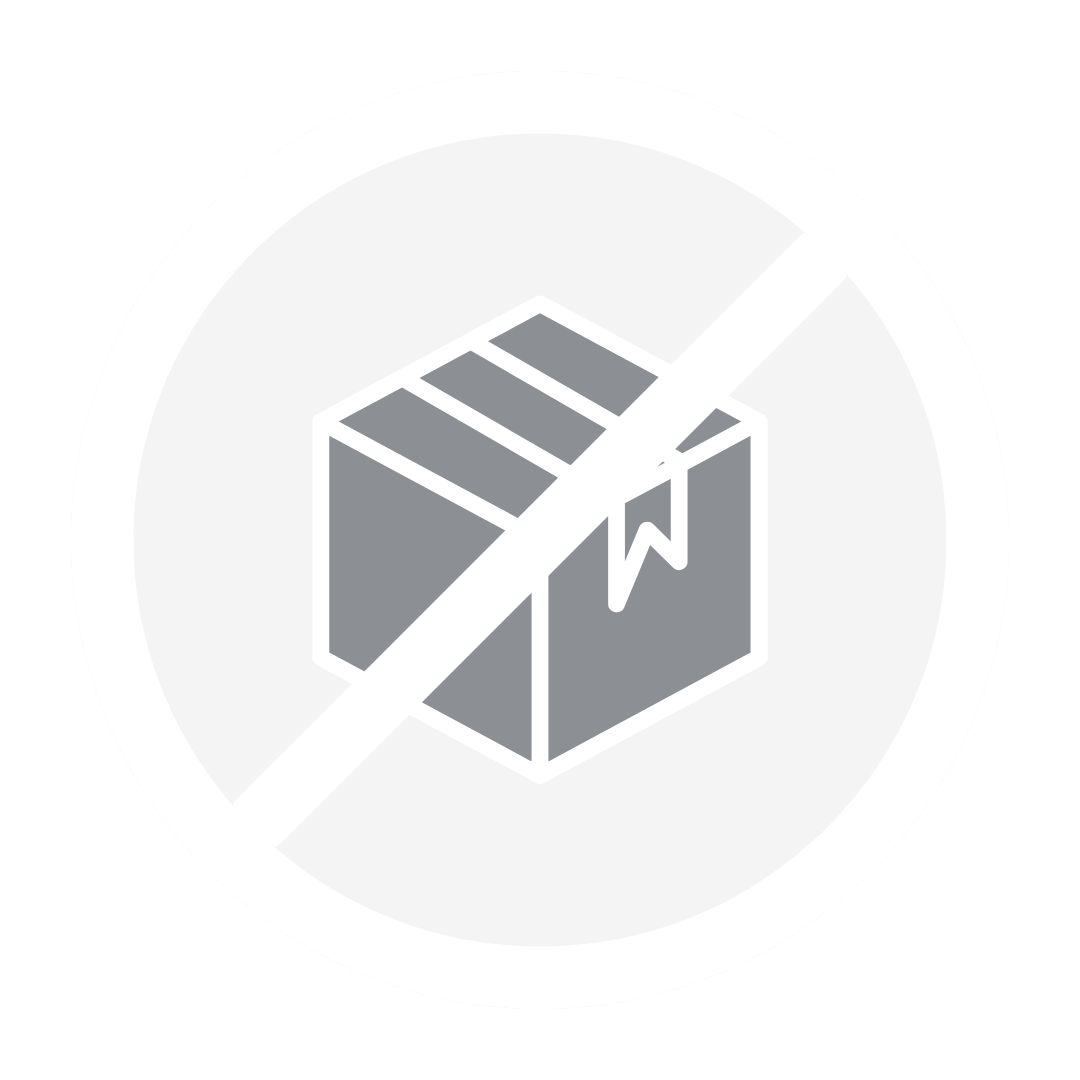With ever-changing rules and requirements, navigating the complexities of global trade regulations can be challenging. Our aim is to provide clear and current information to help businesses avoid costly mistakes when importing and exporting. Whether you’re a seasoned exporter or new to the world of international trade, our FAQ-driven approach will provide the guidance you need to ensure compliant and successful global operations.
What is Trade Compliance?
Trade compliance is the process of adhering to local laws, regulations, and rules when importing and exporting goods and services across international borders. It’s an umbrella term that encompasses different types of compliance requirements including:

Each country has its own trade regulations and compliance requirements that includes permits and special licenses to ship. For example, countries such as India and Bangladesh have restrictions placed on wireless tech goods, while other countries like Brazil and Nigeria have restrictions on second-hand IT goods.
Not only that, but there are also different regulations depending on the industry and type of goods. For instance, regulations will differ for technology, aerospace, industrial machinery, and even SWAG material.
 Goods meet local rules, regulations and requirements.
Goods meet local rules, regulations and requirements.
 Countries can be confident that consumers are protected, goods are ethical, and financial laws are adhered to.
Countries can be confident that consumers are protected, goods are ethical, and financial laws are adhered to.
 Your business doesn’t incur any fines, penalties, or even imprisonment.
Your business doesn’t incur any fines, penalties, or even imprisonment.

The prevention of shipping delays, as failure to comply can cause stuck shipments, ultimately leading to dissatisfied customers.
What Does Trade Compliance Involve?
Trade classification
This is the classification of goods entering or exiting a country. It is essential for customs compliance, working out duty rates, determining the origin of goods, and meeting other customs clearance requirements.
Typically, the Standard International Trade Classification (SITC) is used. This is managed by the United Nations Statistics Division and allows for comparison of product classifications across countries.
Customs Management
Customs management refers to the practices companies adopt to ensure their imports and exports comply with customs regulations.
If anything goes wrong at customs, you will need a plan to meet all the necessary requirements and laws. This requires a lot of expertise, especially if you’re importing and exporting into multiple countries. If you hire a customs compliance specialist, you can be confident that all these requirements are met.
Incoterms
Incoterms which are published by the International Chamber of Commerce (ICC) clarify the responsibilities of buyers and sellers in regard to importing and exporting.
They’re internationally recognized, and provide a common set of rules across different countries. Learn more about this in our incoterms guide.
Import Licensing
Businesses need to check whether they need certain licenses when importing. For example, there may be licenses and permits you need specifically to import technology hardware. Without this, you may be liable for fines, stuck shipments, or even the complete destruction of the goods. Consulting with an expert IOR can clarify any concerns you might have about import licenses and trade compliance.
Export Controls
Equally, there is legislation for exporting that international traders need to follow. As a business, you need to classify your goods against the correct laws and ECCN numbers to determine the necessary export licenses and highlight any restrictions associated with your shipment.
Preferential Origin
Goods coming from countries with a special trade agreement can enjoy reduced rates of duty. There are specific rules to follow based on preferential origin and, on the flip side, rules for goods with non-preferential origin.
Screening
This process involves screening restricted goods by cross-referencing customer, transaction, employee, supplier, and OEM data to ensure compliance. The list of embargoed and dual-use goods and countries changes frequently, making it challenging to stay updated. TecEx manages these changes in the international trade market on your behalf.
Valuation
All goods need to be valued accurately, so they are imported at a fair rate and the destination country gets the correct amount of tax and duties. Valuations needs to be defendable if questioned. To combat this, you can follow an approved methodology for valuation, otherwise you may be fined or penalized.
Who Has to Comply with Trade Compliance?
Any business engaged in importing or exporting goods must adhere to international trade regulations. While compliance is mandatory for all sectors, certain industries, such as medical and technology, face more stringent requirements due to the sensitive nature of their products. Regardless of the industry, all businesses must ensure compliance with relevant laws and standards to avoid penalties, disruptions, and legal issues.
Who is Responsible for Trade Compliance?
As a business, you are accountable for ensuring trade compliance. This involves conducting thorough research to understand and adhere to country-specific and industry-specific requirements. Non-compliance with these regulations falls directly on your shoulders, potentially leading to significant consequences.
However, as we know how taxing compliance can be for anyone who isn’t an expert, you can delegate these responsibilities by hiring a customs compliance specialist. Through our Importer of Record (IOR) service, TecEx can manage all aspects of trade compliance on your behalf, ensuring that your operations meet all necessary legal and regulatory standards.
What are the Consequences of Not Complying with Trade Regulations?
Ignoring or non-compliance with trade regulations can result in consequences ranging from financial penalties to operational disruptions and even reputational damage. Here’s a breakdown of the potential downsides:

Financial Penalties:
You may face hefty fines for incorrect duties, classification errors, or missing paperwork such as a POA. You can potentially face up to triple the duties owed or even seizure of goods.

Delays and Disruptions:
Non-compliance can cause customs delays, disrupting your supply chain, resulting in lost sales and frustrated customers.

Licence Issues:
Repeated non-compliance can lead to the suspension or revocation of your import/export license, effectively halting your international trade operations.

Reputational Damage:
Non-compliance can harm your brand image and customer trust, making it harder for you to attract new business partners and win contracts.

Legal and Export Restrictions:
Authorities might restrict your ability to export certain goods, blacklist you from trading with specific countries, or pursue legal action, leading to further penalties and potential criminal charges.
The severity of the consequences depends on the specific regulation violated and the intent behind it. However, to avoid these costly and damaging pitfalls it’s always advisable to prioritize trade compliance throughout your shipping journey.
Is Trade Compliance the Same as Customs Compliance?
Trade compliance encompasses all the regulations and procedures businesses must follow to conduct international trade lawfully. It ensures that your import and export activities comply with the laws of all countries involved.
Within this broad framework, customs compliance is a specific area that focuses on adhering to the customs regulations of individual countries. This includes proper classification of goods, accurate documentation, payment of duties and taxes, and compliance with any restrictions or licensing requirements imposed by the customs authorities.
While trade compliance covers a wide range of legal and regulatory requirements, customs compliance zeroes in on the specific rules and processes related to the entry and exit of goods through a country’s borders.
Avoid the Risk with the TecEx Trade Compliance Solution
As you can now tell, navigating the complexities of importing and exporting involves significant risk, particularly when it comes to adhering to local laws and regulations of multiple countries. Non-compliance can have serious repercussions for your business. At TecEx, we specialize in customs compliance and offer global trade compliance services designed to help you expand internationally without facing these risks.
Our team of experts, with extensive experience in over 200 destinations, ensures that you can confidently and compliantly import and export goods almost anywhere in the world.
Trade compliance can be a stressful and demanding process without professional assistance. By partnering with us, you can focus more on growing your business and less on the intricacies of compliance.
Contact us today to discuss how we can support your international expansion efforts.


